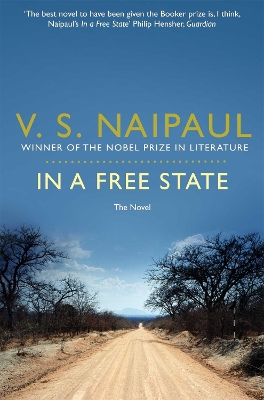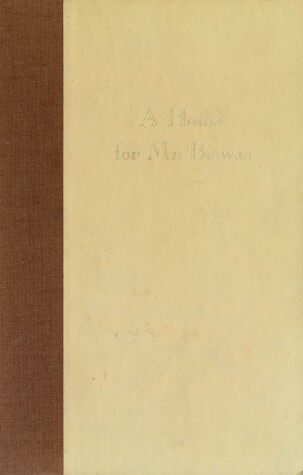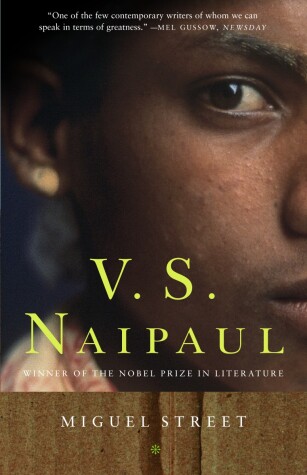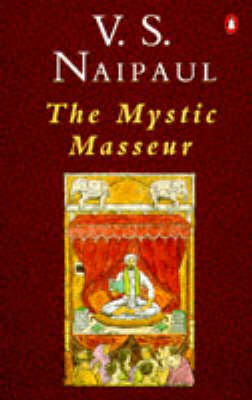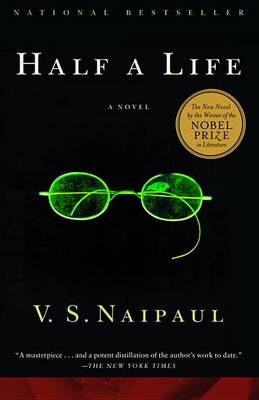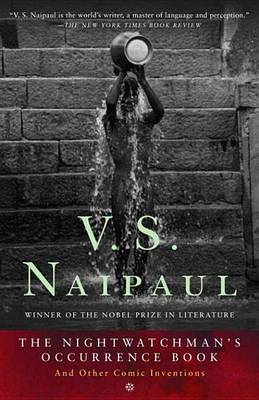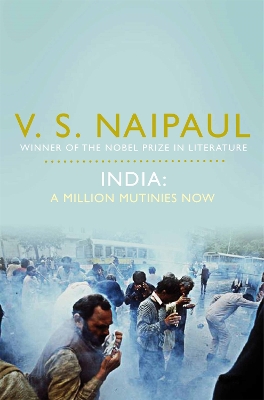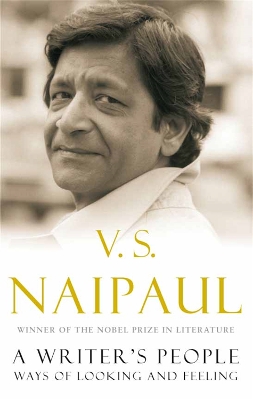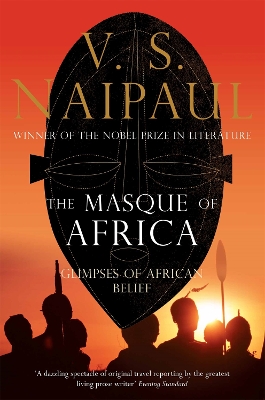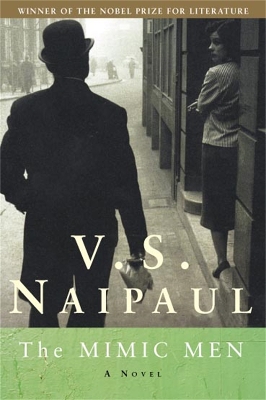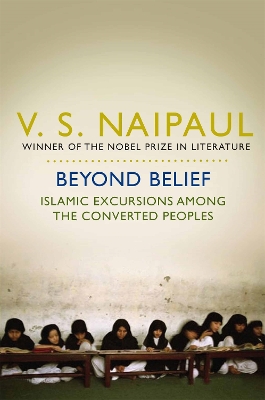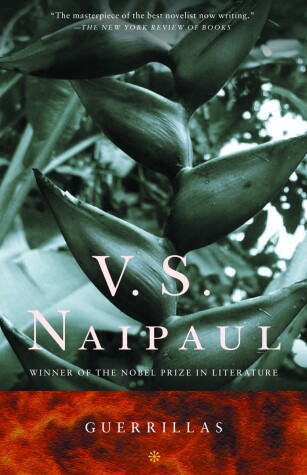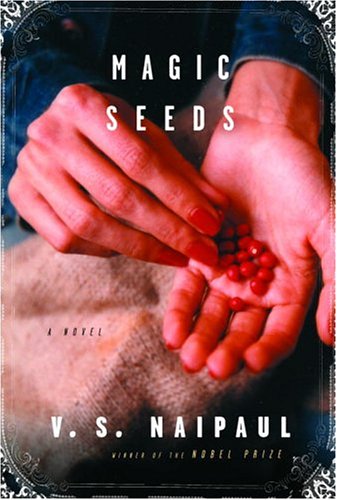Vintage International
15 total works
The central novel from V.S. Naipaul’s Booker Prize-winning narrative of displacement, published for the first time in a stand-alone edition.
‘In a Free State was conceived in 1969 as a sequence about displacement. There was to be a central novel, set in Africa, with shorter surrounding matter from other places. The shorter pieces from these varied places were intended to throw a universal light on the African material. But then, as the years passed and the world changed, and I felt myself less of an oddity as a writer, I grew to feel that the central novel was muffled and diminished by the surrounding material and I began to think that the novel should be published on its own. This is what, many years after its first publication, my publisher is doing in this edition.’ - V. S. Naipaul.
In a Free State is set in Africa, in a place like Uganda or Rwanda, and its two main characters are English. They had once found liberation in Africa. But now Africa is going sour on them. The land is no longer safe, and at a time of tribal conflict they have to make a long drive to the safety of their compound. At the end of this drive – the narrative tight, wonderfully constructed, the formal and precise language always instilled with violence and rage – we know everything about the English characters, the African country, and the Idi Amin-like future awaiting it.
Set in an unnamed African country, V. S. Naipaul's A Bend in the River is narrated by Salim, a young man from an Indian family of traders long resident on the coast. He believes The world is what it is; men who are nothing, who allow themselves to become nothing, have no place in it. So he has taken the initiative; left the coast; acquired his own shop in a small, growing city in the continent’s remote interior and is selling sundries – little more than this and that, really – to the natives.
This spot, this ‘bend in the river’, is a microcosm of post-colonial Africa at the time of Independence: a scene of chaos, violent change, warring tribes, ignorance, isolation and poverty. And from this rich landscape emerges one of the author’s most potent works – a truly moving story of historical upheaval and social breakdown.
In his forty-six short years, Mr. Mohun Biswas has been fighting against destiny to achieve some semblance of independence, only to face a lifetime of calamity. Shuttled from one residence to another after the drowning death of his father, for which he is inadvertently responsible, Mr. Biswas yearns for a place he can call home. But when he marries into the domineering Tulsi family on whom he indignantly becomes dependent, Mr. Biswas embarks on an arduous and endless struggle to weaken their hold over him and purchase a house of his own. A heartrending, dark comedy of manners, A House for Mr. Biswas masterfully evokes a man s quest for autonomy against an emblematic post-colonial canvas."
“One of the few contemporary writers of whom we can speak in terms of greatness.” —Newsday
“A stranger could drive through Miguel Street and just say ‘Slum!’ because he could see no more.” But to its residents this corner of Trinidad’s capital is a complete world, where everybody is quite different from everybody else. There’s Popo the carpenter, who neglects his livelihood to build “the thing without a name.” There’s Man-man, who goes from running for public office to staging his own crucifixion, and the dreaded Big Foot, the bully with glass tear ducts. There’s the lovely Mrs. Hereira, in thrall to her monstrous husband. This tender, funny early novel is a work of mercurial mood shifts, by turns sweetly melancholy and anarchically funny. It overflows with life on every page.
Written early in V. S. Naipaul’s prolific career, these three works of fiction — two novels and a collection of stories — are ample evidence of his cosmopolitan reach and his seemingly effortless command of broad comedy and acute observation.
The third book in V. S. Naipaul's acclaimed Indian trilogy, with a preface by the author. India: A Million Mutinies Now is a truly perceptive work whose insights continue to inform travellers of all generations to India.
Much has changed since V. S. Naipaul's first trip to India and this fascinating account of his return journey focuses on India's development since independence.
Taking an anti-clockwise journey around the metropolises of India - including Bombay, Madras, Calcutta, and Delhi - Naipaul offers a kaleidoscopic, layered travelogue, encompassing a wide collage of religions, castes, and classes at a time when the percolating ideas of freedom threatened to shake loose the old ways. The brilliance of the book lies in Naipaul's decision to approach this shifting, changing land from a variety of perspectives: the author humbly recedes, allowing the Indians to tell the stories of their own lives, and a dynamic oral history of India emerges before our eyes.
'With this book he may well have written his own enduring monument, in prose at once stirring and intensely personal, distinguished both by style and critical acumen' - Financial Times
Moving beyond travelogue, V. S. Naipaul's The Masque of Africa considers the effects of belief (in indigenous animisms, the foreign religions of Christianity and Islam, the cults of leaders and mythical history) upon the progress of African civilization. Beginning in Uganda, at the centre of the continent, Naipaul's journey takes in Ghana and Nigeria, the Ivory Coast and Gabon, and ends, as the country does, in South Africa.
Focusing upon the theme of belief - though sometimes the political or economical realities are so overwhelming that they have to be taken into account - Naipaul examines the fragile but enduring quality of the old world of magic. To witness the ubiquity of such ancient ritual, to be given some idea of its power, was to be taken far back to the beginning of things. To reach that beginning was the purpose of this book.
'The quality of Naipaul's writing - simple, concise, engaging - rarely varies . . . Above all, Naipaul's latest African journey is eyewitness reporting at its best' Time
'The sweep of Naipaul's imagination, the brilliant fictional frame that expresses it, are in my view eithout equal today' - "New York Times Book Review".
Beyond Belief is a book about one of the more important and unsettling issues of our time. But it is not a book of opinion. It is, in the Naipaul way, a very rich and human book, full of people and their stories: stories of family, both broken and whole; of religion and nation; and of the constant struggle to create a world of virtue and prosperity in equal measure.
Islam is an Arab religion, and it makes imperial Arabizing demands on its converts. In this way it is more than a private faith; and it can become a neurosis. What has this Arab Islam done to the histories of the non-Arab Islamic states: Indonesia, Iran, Pakistan, and Malaysia? How do the converted peoples view their past - and their future? In a follow-up to Among the Believers, his classic account of his travels through these countries, V. S. Naipaul returns, after a gap of seventeen years, to find out how and what the converted preach.
'Peerless . . . the human encounters are described minutely, superbly, picking up inconsistencies in people's tales, catching the uncertainties and the nuances . . . there is a candour to his writing, a constant precision at its heart' - Sunday Times
“A brilliant novel in every way.… [It] shimmers with artistic certainty.” —The New York Times Book Review
Set on a troubled Carribbean island, where “everybody wants to fight his own little war,” where “everyone is a guerrilla,” the novel centers on an Englishman named Roche, once a hero of the South African resistance, who has come to the island – subdued now, almost withdrawn – to work and to help. Soon his English mistress arrives: casually nihilistic, bored, quickly enticed – excited – by fantasies of native power and sexuality, and blindly unaware of any possible consequences of her acts. At once Roche and Jane are drawn into fatal connection with a young guerrilla leader named Jimmy Ahmed, a man driven by his own raging fantasies of power, of perverse sensuality, and of the England he half remembers, half sentimentalizes. Against the larger anguish of the world they inhabit, these three act out a drama of death, hideous sexual violence, and political and spiritual impotence that profoundly reflects the ravages history can make on human lives.
Willy Chandran-whom we first met in Half a Life-is a man who has allowed one identity after another to be thrust upon him. Now, in his early 40s, after a peripatetic life, he succumbs to the demanding encouragement of his sister-and his own listlessness-and joins an underground movement in India ostensibly devoted to unfettering the lower castes. But seven years of revolutionary campaigns and several years in jail convince him that the revolution "had nothing to do with the village people we said we were fighting for," and he feels himself further than ever "from his own history and...from the ideas of himself that might have come to him with that history." When he returns to England where, 30 years before, his psychological and physical wanderings began, he finds the fruit of another unexpected social revolution (more magic seeds), and he comes to see himself as a man "serving an endless prison sentence"-a revelation that may finally release him into his true self.
Magic Seeds is a masterpiece, written with all the depth and resonance, the clarity of vision and precision of language that are the hallmarks of this brilliant writer.
